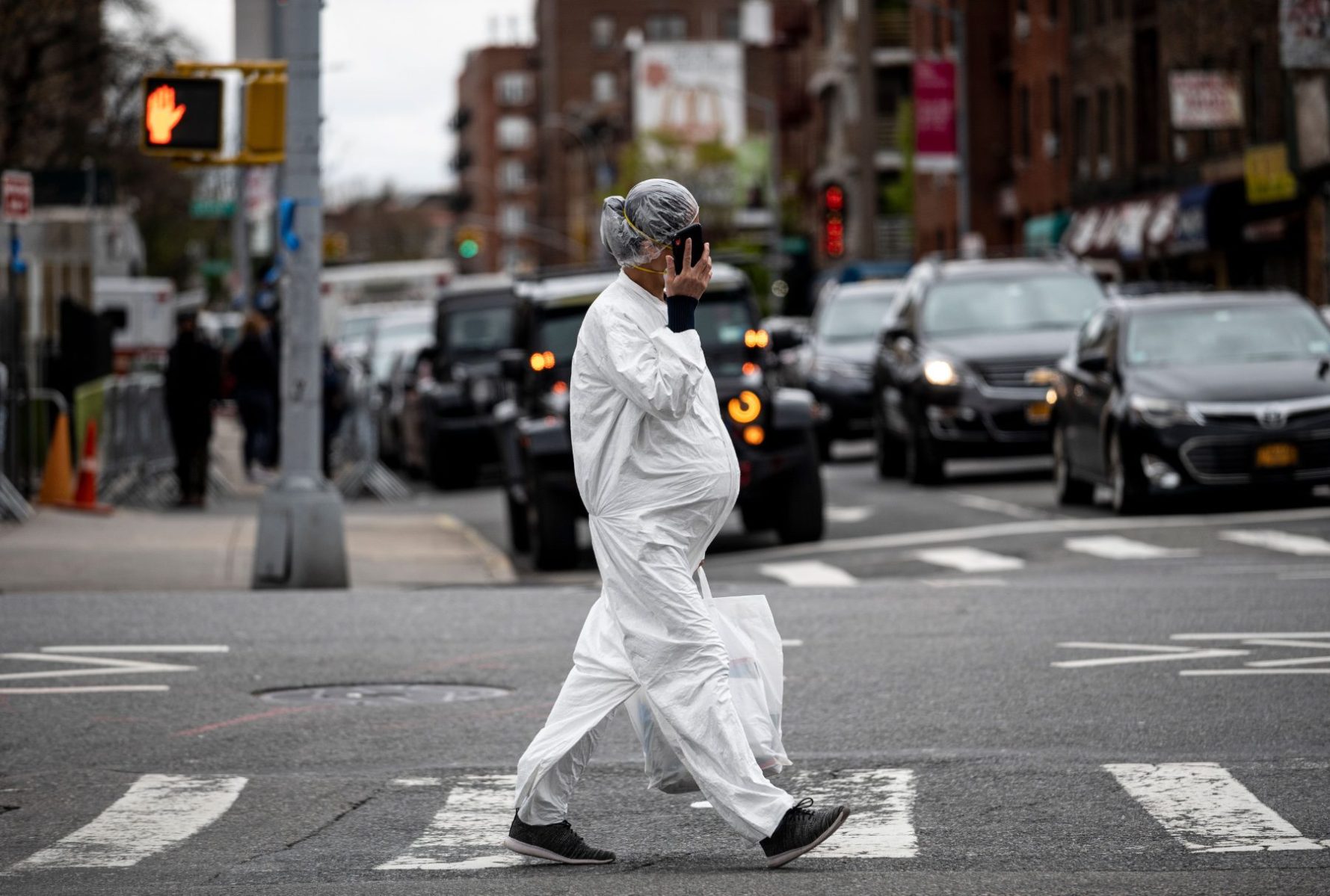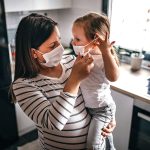Under any other circumstances, Ashley Henriquez would have gotten a COVID-19 vaccine right away.
“I got the HPV vaccine when it first came out. I’m somebody who would take a vaccine no problem,” she said.
The complication: Henriquez, 33, was newly pregnant when the coronavirus vaccines first became available in Florida, where she lives. Her obstetrician advised her to wait until her second trimester. And then everywhere she turned — talking to her husband, consulting pregnancy-related Facebook groups, and posing the question to friends and family — she got different advice on what to do. Nobody seemed to have solid answers.
“I still didn’t feel 100 percent, just because of the lack of knowledge. What was it going to do to the baby?” she said. “And the variety of views that were coming from my community of people were definitely split in the middle. It was like, ‘You can do what you want to do.’ I was just very conflicted.”
But as July progressed, she watched cases surge. Her husband, a medical resident, brought home stories about unvaccinated pregnant people being hospitalized for COVID-19, being intubated and undergoing emergency C-sections. She realized she couldn’t wait any longer.
“I felt as though the first wave coming was more for the older people that I was hearing about. It wasn’t the younger, healthy individuals,” she said. “But I felt like I wasn’t going to be as lucky this time around.”
She got her first vaccine dose at the end of July, when she was 28 weeks pregnant. Her second shot was in mid-August. Her baby — who is due in October, and whom she and her husband plan to name Sienna — will likely be born with protective antibodies, early research suggests. Now, she is speaking about her experience in Facebook groups and to friends, in case it helps others feel comfortable getting a shot.
Henriquez’ dilemma represents one of the steepest challenges currently faced by the nation’s public health infrastructure, as the highly transmissive Delta variant fuels what, in some parts of the country, could be the virus’ deadliest surge yet.
People who are vaccinated against the coronavirus — a slim majority of the country, per federal data — are generally protected against the Delta variant. But the unvaccinated remain at risk, and constitute the overwhelming majority of COVID-19 hospitalizations. The situation is particularly dire for pregnant people: All research suggests that pregnancy dramatically increases the risk of COVID-19 complications that require hospitalization. Pregnant people are also at greater risk of dying from the virus.
And yet, the COVID-19 vaccination rate among them remains troublingly low.
Fewer than 1 in 4 pregnant Americans have gotten at least one dose of a COVID-19 vaccine. Pregnant Asian people have the highest vaccination rate: 35.1 percent, or just over a third, are at least partially immunized. Rates are lowest for Black pregnant people: Only 11.4 percent have gotten partially or fully vaccinated.
Two weeks ago, the CDC — upon reviewing the cases of pregnant Americans so far vaccinated — took the new step of explicitly recommending that pregnant people get vaccinated. This past Monday, the Food and Drug Administration fully approved Pfizer’s two-shot coronavirus vaccine, moving it past the emergency authorization status, which the other two available vaccines in the country still operate under. Both changes could help move the needle, but it’s not yet clear if it will be enough to convince pregnant people to get vaccinated.
“It’s starting to change, but very slowly,” said Dr. Marta Perez, a St. Louis-based OB/GYN. “There has been some increasing acceptance for vaccination over the last maybe one-and-a-half months. But not as much as I would like to see.”
The problem isn’t surprising. Despite multiple appeals by medical ethicists, pregnant people were not included in clinical trials for any of the available coronavirus vaccines. When the shots were first authorized, the Centers for Disease Control and Prevention encouraged pregnant people to consult with their doctors about whether they should get vaccinated. Major medical groups at the time, including the American College of Obstetricians and Gynecologists and the Society for Maternal-Fetal Medicine, recommended that pregnant people be allowed to get the vaccine if they wanted to, which frustrated and confused many.
“You go to a doctor for results and information,” Henriquez said. “We need them to guide us.”
Myths about the vaccine — for instance, false claims that it could make someone infertile, or otherwise harm the reproductive system — have been of particular concern for people who are either pregnant or trying to conceive, many medical experts say. Such claims have gained particular traction on social media sites such as Facebook and Instagram, whose user bases include large shares of reproductive-aged women.
“Some are trying to get pregnant, some are already having trouble getting pregnant — going to an infertility clinic and going through IVF or other processes,” said Dr. Crystal Clark, a physician at Northwestern University focused on perinatal mental health, who has counseled many patients about vaccination. “They’re scared to death this is going to be the thing that makes it harder to get pregnant.”
Many patients have also raised concerns that the vaccine could add to the risk of miscarriage, or harm their baby’s development, Clark said. (Vaccination has not been linked to either concern.)
Nationally, COVID-19 immunization rates have trended upward in recent weeks, a surge officials attribute to the heightened concern surrounding Delta. Anecdotally, many OB/GYNs told The 19th that concern over that variant appears to be driving more pregnant patients to get immunized, though there isn’t yet hard data to support that.
“Pregnant people used to think, ‘If I mask and social distance, even though I’m unvaccinated, I’ll be protected.’ But they’re seeing how contagious Delta is,” Perez said. “The options used to be get the vax or try not to get COVID. Now pregnant people are seeing the options are get the vaccine or be found by COVID.”
But it’s not clear what it will take to substantially increase uptake. The most recent CDC data — dating from August 14 — suggests that there has been little meaningful improvement since July in the percentage of pregnant people who are vaccinated. There are plenty of vaccines available.
The White House has acknowledged it’s a concern.
“We believe this issue is so important that we have been working with a number of assets to help get the information out,” Surgeon General Vivek Murthy said at a Tuesday press briefing.
That has meant partnering with organizations including the American College of Obstetricians and Gynecologists to share information about the vaccine, and working with community-based organizations like churches and synagogues to hold direct outreach events.
Other doctors said incorporating vaccination recommendations into prenatal care or coupling it with flu shots could help. Henriquez suggested something even simpler.
“I don’t feel like we have a lot of resources or individual cases from pregnant women who are speaking up,” she said. “We need actual pregnant women saying, ‘This was my experience. I’ve gone through it. Everything was OK.’”






